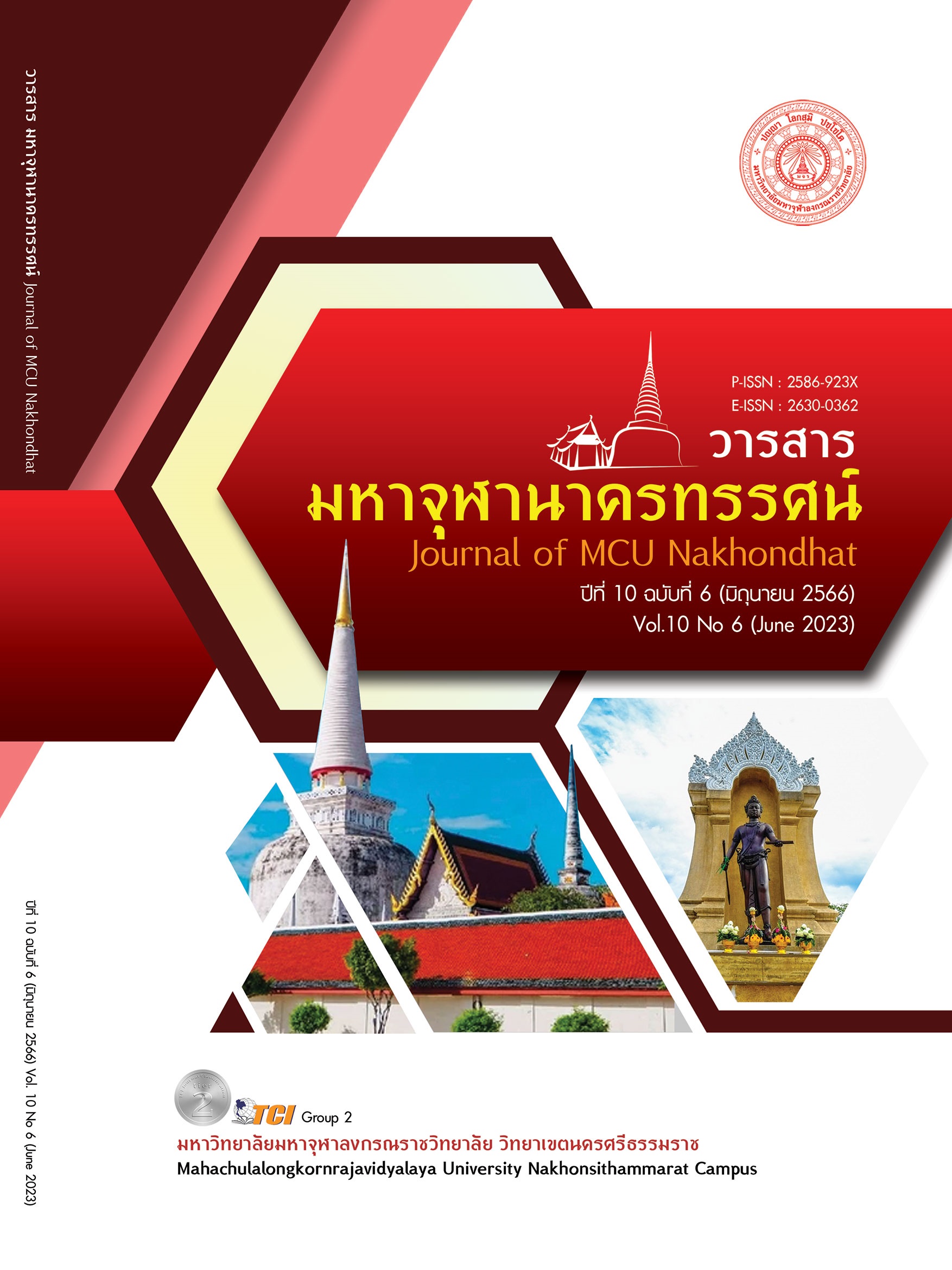AN ANALYSIS OF INFORMATION ON DRUG OFFENDERS IN THAILAND TO DETERMINE GUIDELINES FOR REMEDIAL ACTION AND PREPARATION BEFORE RELEASE
Main Article Content
Abstract
The purpose of this research article is to study information about drug offenders in Thailand in order to determine guidelines for correction and preparation before release . The study was conducted by a qualitative research method with the objectives of the study : 1 ) to know the situation of drug offenders in Thai prisons; leading to an analysis of preparation methods before releasing offenders in terms of mental, intellectual, physical, and behavioral 2 ) Analyze the data as a basis for defining activities and planning to correct behavior before release and support rehabilitation after release. Research results showed that As many as 80 percent of those convicted of drug-related imprisonment were charged with drug use, possession, and trading in the highest number. drug production base Imported into the Kingdom 3.44% The drug that was found to be the most offender was Types of methamphetamine. Defining guidelines and preparing before release taking into account the appropriateness of individual rehabilitation in various activities so that each person can live in the future without committing another offense. 1) Knowledge New and new better ideas, namely the creation of consciousness, knowledge, development of ideas. self esteem self-confidence and encouragement 2) morality in thinking and decision-making 3) Basic Education and Higher Basic Education 4) Possible occupation after release from prison and capital for self-employment by making an effective “individual punishment plan” Therefore, a specific course must be made as a guideline for correction and preparation before release.
Article Details

This work is licensed under a Creative Commons Attribution-NonCommercial-NoDerivatives 4.0 International License.
References
กอบกูล จันทวโร และคณะ. (2558). มาตรการทางกฎหมายในการพัฒนาทางเลือกสำหรับผู้กระทำความผิดคดียาเสพติดเพื่อสนับสนุนการดำเนินงานตามข้อกำหนดกรุงเทพมหานคร. ใน รายงานการวิจัยภายใต้โครงการกำลังใจในพระดำริพระเจ้าหลานเธอ พระองค์เจ้าพัชรกิติยาภา. กระทรวงยุติธรรม.
กอบกูล จันทวโร และคณะ. (2559). รายงานการศึกษาและข้อเสนอทางกฎหมายสำหรับผู้กระทำผิดคดียาเสพติด เพื่อเป็นข้อเสนอในการประชุมสหประชาชาติสมัยพิเศษ UNGASS. ใน รายงานการวิจัยสำนักกิจการในพระดำริพระเจ้าหลานเธอ พระองค์เจ้าพัชรกิติยาภา. กระทรวงยุติธรรม.
คณิต ณ นคร. (2561). กฎหมายวิธีพิจารณาความอาญา. (พิมพ์ครั้งที่ 9). กรุงเทพมหานคร: สำนักพิมพ์วิญญูชน.
ประมวลกฎหมายยาเสพติด. (2564). ราชกิจจานุเบกษา เล่ม 138 ตอนที่ 73 ก หน้า 11-80 (8 พฤศจิกายน 2564).
อภิชาติ ดำรงสันติสุข. (2556). แผนบังคับโทษจำคุกรายบุคคล. ใน นิติศาสตรมหาบัณฑิตย์. มหาวิทยาลัยธุรกิจบัณฑิตย์.
Bernd-Dieter Meier. (2009). Strafrechtliche Sanktionen. 3 Auflage. Springer Berlin: Germany.
Claus Roxin. (2014). Strafvertfahrens-recht. 28 Auflage. C.H.BECK : München Germany.
Günther Kaiser. (1984). Prison Systems & Correctional Law : Europe, The United States, and Japan A Comparative Analysis. Transnational Publishers: USA.
Günther Kaiser. (2003). Strafvollzug. 5 Auflage. C.F.Müller: Heidelberg Germany.
Joan Petersilia. (2003). When Prisoners Come Home. New York: Oxford, USA.
Klaus Laubenthal. (2008). Strafvollzug. 5 Auflage. Springer: Würzburg: Gemany.
Stephen Livingstone & Tim Owen. (1999). Prison Law. (2nd ed). New York: Oxfort UK.
UNAFEI. (2014). Criminal Justice in Japan. UNAFEI: Tokyo: Japan.


